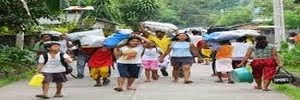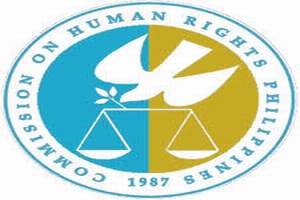From the Website of the President
links: http://president.gov.ph/news/official-hopes-apec-talks-would-replicate-boracay-islands-success-story/
Official hopes APEC talks would replicate Boracay Island’s success story
May 21, 2015
Chair of the Asia-Pacific Economic Cooperation 2015 Senior Officials’
Meeting (SOM), Laura del Rosario, said she hopes the ongoing APEC
discussions would open up new frontiers in the region for the benefit of
its people, much like Boracay Island’s humble beginnings.
During the opening of the SOM2 at Shangri-La’s Boracay Resort here, del Rosario shared a story on how Boracay got its name and how it began its transformation into a major tourist attraction.
The island’s development, she said, started from the vision of an enterprising couple, Lamberto and Sofia Tirol, who settled in the northern part of the island.
The Tirol couple, regarded as the pioneer of the island, relocated to Boracay to plant coconut, corn and tobacco, as well as raise goats.
Still nameless at that time, the island got its name when one day, Lamberto was looking seaward and noticed a formation of small bubbles as the waves washed ashore.
He called his wife, saying “Akay, anggud ka bora.”
“Bora” in the local language means bubbles and “akay” is a term of endearment. The natives overheard the conversation and started calling the island Boracay, del Rosario related.
“But more than just giving the island a name, the couple’s decision to settle in the island and till the land for livelihood and stimulate development started a chain of events that would change the landscape of the island and set it on a course toward being the tourist destination it is today,” she noted.
Later on, economic activities in the island gradually diversified from rice farming, goat raising and other activities into tourism. By the 1980s, Boracay was already beginning to become a popular destination for tourists who wanted a quiet vacation.
The advancement in connectivity and the rise of the Internet however got in the way, she said.
By the 1990s, Boracay’s beaches came to be known as among the best in the world.
Since then, Boracay has become a leading tourist spot and home to tourism-related enterprises of different scales.
“So you see, my dear colleagues, the island was borne out of the industry of the people and entrepreneurial spirit delivering, rendering services, willing to take chances,” del Rosario told the APEC delegates.
“This is the same spirit that thrives in the works of APEC to open the highways to new frontiers and address next generations’ issues with a forward-looking approach to economic policy.”
She said current APEC discussions fearlessly tackle issues that would help uplift the lives of ordinary people.
Participants see economic growth through the lens of inclusiveness and give primary emphasis on the varying nature of the Asia-Pacific region and promote cooperation, not only in trade and business facilitation but also on issues that affect the common people, she explained.
Also in the discussion agenda are connectivity and micro, small and medium enterprises (MSMEs). The aim, according to del Rosario, is to build a human system that focuses on sound economic policies, which are truly inclusive and empowered.
“We want our children and future generation to be educated and equipped with the knowledge and skills that will sustain them through the changing economic and technological landscape long after we are gone,” she said.
“We want to fully harness the advancement in technology to our advantage and improve the quality of life that our people have. We want technology to sustain our way of life rather than extinguish the resources, which our very sustenance depends on.”
The discussions also call for good governance and good regulatory regimes embedded in the economic ecosystem, she added.
In conclusion, del Rosario said she hopes the APEC delegates would find time to enjoy what Boracay Island has to offer and realize that it is indeed more fun in the Philippines.
During the opening of the SOM2 at Shangri-La’s Boracay Resort here, del Rosario shared a story on how Boracay got its name and how it began its transformation into a major tourist attraction.
The island’s development, she said, started from the vision of an enterprising couple, Lamberto and Sofia Tirol, who settled in the northern part of the island.
The Tirol couple, regarded as the pioneer of the island, relocated to Boracay to plant coconut, corn and tobacco, as well as raise goats.
Still nameless at that time, the island got its name when one day, Lamberto was looking seaward and noticed a formation of small bubbles as the waves washed ashore.
He called his wife, saying “Akay, anggud ka bora.”
“Bora” in the local language means bubbles and “akay” is a term of endearment. The natives overheard the conversation and started calling the island Boracay, del Rosario related.
“But more than just giving the island a name, the couple’s decision to settle in the island and till the land for livelihood and stimulate development started a chain of events that would change the landscape of the island and set it on a course toward being the tourist destination it is today,” she noted.
Later on, economic activities in the island gradually diversified from rice farming, goat raising and other activities into tourism. By the 1980s, Boracay was already beginning to become a popular destination for tourists who wanted a quiet vacation.
The advancement in connectivity and the rise of the Internet however got in the way, she said.
By the 1990s, Boracay’s beaches came to be known as among the best in the world.
Since then, Boracay has become a leading tourist spot and home to tourism-related enterprises of different scales.
“So you see, my dear colleagues, the island was borne out of the industry of the people and entrepreneurial spirit delivering, rendering services, willing to take chances,” del Rosario told the APEC delegates.
“This is the same spirit that thrives in the works of APEC to open the highways to new frontiers and address next generations’ issues with a forward-looking approach to economic policy.”
She said current APEC discussions fearlessly tackle issues that would help uplift the lives of ordinary people.
Participants see economic growth through the lens of inclusiveness and give primary emphasis on the varying nature of the Asia-Pacific region and promote cooperation, not only in trade and business facilitation but also on issues that affect the common people, she explained.
Also in the discussion agenda are connectivity and micro, small and medium enterprises (MSMEs). The aim, according to del Rosario, is to build a human system that focuses on sound economic policies, which are truly inclusive and empowered.
“We want our children and future generation to be educated and equipped with the knowledge and skills that will sustain them through the changing economic and technological landscape long after we are gone,” she said.
“We want to fully harness the advancement in technology to our advantage and improve the quality of life that our people have. We want technology to sustain our way of life rather than extinguish the resources, which our very sustenance depends on.”
The discussions also call for good governance and good regulatory regimes embedded in the economic ecosystem, she added.
In conclusion, del Rosario said she hopes the APEC delegates would find time to enjoy what Boracay Island has to offer and realize that it is indeed more fun in the Philippines.
Office of the President Website
Article links:
OTHER HUMAN RIGHTS PROMOTIONS WEBSITES
PROTECTION AND PROMOTION OF HUMAN RIGHTS
------------------------------------------------------------------------------------------------
-----------------------------------------------------------------------
-----------------------------------
-----------------------------------------------------------------------
-----------------------------------




























































0 comments:
Post a Comment